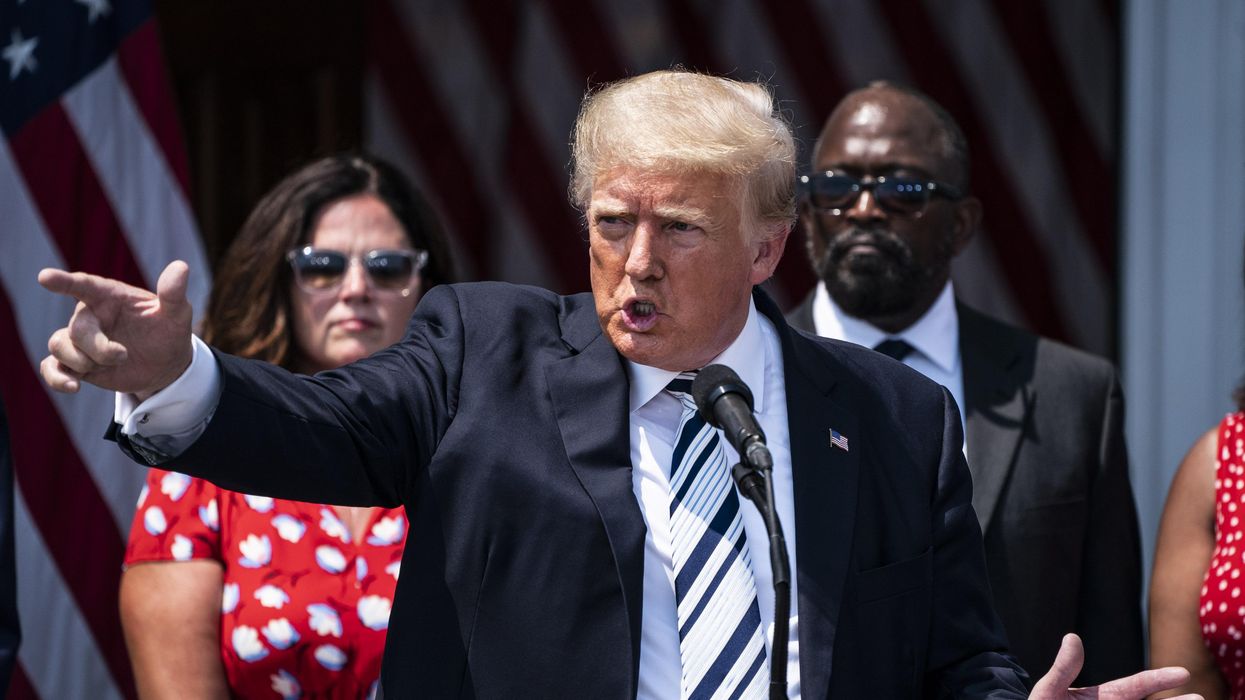Former President Donald Trump on Wednesday filed class-action lawsuits against Facebook, Twitter and YouTube arguing his suspension from those platforms violates the First Amendment.
However, legal experts say that argument has little chance of succeeding in court since the First Amendment constrains only the government, and not private entities.
The First Amendment specifically says "Congress shall make no law ... abridging the freedom of speech, or of the press," and the Supreme Court has extended that protection against all government agencies and officials — executive, legislative and judicial, as well as federal, state and local, per the National Constitution Center.
This protection does not include private individuals or organizations, such as Facebook, Twitter and Google, which owns YouTube. But Trump is arguing that certain private businesses have become "state actors" and therefore are required to abide by the First Amendment. Trump claims:
Defendant Facebook has increasingly engaged in impermissible censorship resulting from threatened legislative action, a misguided reliance upon Section 230 of the Communications Decency Act ... and willful participation in joint activity with federal actors. Defendant Facebook's status thus rises beyond that of a private company to that of a state actor, and as such, Defendant is constrained by the First Amendment right to free speech in the censorship decisions it makes regarding its Users.
But the Supreme Court, in an opinion authored by Trump-appointed Justice Brett Kavanaugh, declared in 2019 that media platforms are not state actors.
Trump and his supporters have long lambasted social media companies for so-called "cancel culture" and their disparate treatment of conservative voices. The former president's removal from Facebook, Twitter and YouTube for inciting the Jan. 6 insurrection at the Capitol fueled this outcry.
"We're demanding an end to the shadowbanning, a stop to the silencing, and a stop to the blacklisting, banishing and canceling that you know so well," Trump said at a press conference Wednesday.
In addition to arguing a First Amendment violation, Trump's lawsuits are also seeking a ruling that declares unconstitutional the so-called Section 230, a decades-old federal law that protects online platforms from lawsuits regarding content moderation decisions.
Evan Greer, director of Fight For the Future, whose organization advocates for Internet freedom and privacy, said that from a legal perspective this lawsuit is likely to go nowhere.
"While it's silly to pretend that the moderation decisions of Big Tech don't have a significant impact on free expression, the First Amendment enables private platforms to make exactly the kind of moderation decisions they wish to make as non-government entities," she said.
Greer and other critics of the lawsuits also pointed out the legal action was likely a fundraising tactic for Trump, who is considering another presidential run in 2024.
Shortly after announcing the lawsuits, Trump's joint fundraising committee sent a text saying, "Pres Trump: I am SUING Facebook & Twitter for UNCONSTITUTIONAL CENSORSHIP. For a short time, 5x-IMPACT on all gifts! Donate NOW."
At the press conference, Trump also encouraged his supporters to go to a website where they could join the class-action lawsuits. However, that site redirects users to one for the America First Policy Institution that only includes a promotional video and links to donate.




















